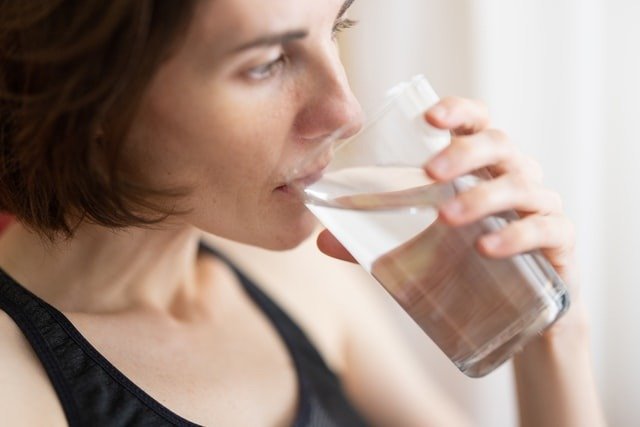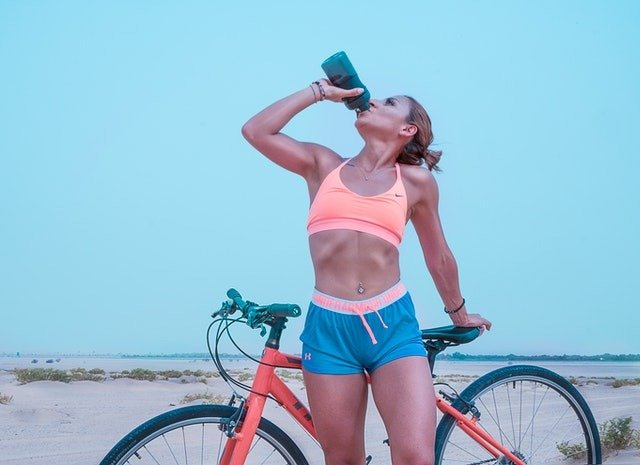
Blog
Hydration is important
Water is the most critical as its absence proves lethal within a few days. Water’s importance in the human body can be loosely categorized into four basic functions: transportation vehicle, medium for chemical reactions, lubricant/shock absorber, and temperature regulator.
Fluid is so important in the body that even when levels drop only slightly, we begin to feel the consequences. Low levels of fluid in the body can cause headaches, feelings of dizziness, lethargy, poor concentration and a dry mouth.
Benefits of staying hydrated.
- Increases Energy & Relieves Fatigue
Since your brain is mostly water, drinking it helps you think, focus and concentrate better and be more alert. As an added bonus, your energy levels are also boosted.
- Promotes Weight Loss
Water removes by-products of fat, reduces eating intake (by filling up your tummy if consumed prior to meals), reduces hunger ( natural appetite suppressant), raises your metabolism and has zero calories. Hence it helps in weight loss too.
- Flushes Out Toxins
Gets rid of waste through sweat and urination which reduces the risk of kidney stones and UTI’s (urinary tract infections).
- Improves Skin Complexion
Moisturizes your skin, keeps it fresh, soft, glowing and smooth. Gets rid of wrinkles. It’s the best anti-aging treatment around!
- Maintains Regularity
Aids in digestion as water is essential to digest your food and prevents constipation.
“Drinking water and staying hydrated is great for maintaining hydration and helps improve the function of your heart, brain and muscles” .
What drinks count?
Simply, any drink will help to promote hydration. Water from the tap is a great choice, not least because it’s readily available and free. Other drinks count towards our total fluid intake too; milk, fruit juice, tea, coffee and soft drinks are all over 85% water and can be included in total fluid intake.
Some drinks contain other nutrients in addition to fluid such as sugars, fats, vitamins and minerals. Fruit juice is one such drink with vitamins, minerals and sugars too. A glass does contribute to fluid intakes and also provides one of the recommended five portions of fruit and vegetables. Regularly choosing drinks with higher levels of added sugars can cause dental problems and is also associated with an increased risk of developing Type 2 diabetes, but there are many sugar free / low sugar drinks choices available today as an alternatives.

How do I know I’m drinking enough?
Simply waiting for the sensation of thirst is not a good sign to drink – by the time we feel thirsty our body is already dehydrated and potentially suffering some of the effects. Equally, simply drinking to eliminate the feeling of thirst does not fully hydrate the body.
The best indicator of good hydration is urine colour, a pale straw coloured urine being a reliable indicator of good hydration. Darker coloured urine is a sure sign that the body needs more fluid. Getting into the habit of drinking regularly is a great way of keeping hydrated.
How much water to drink?
Adults need to drink around 1.5–2 litres of fluid a day. A typical mug or glass is about 200 millilitres (ml) so this equates to 8-10 drinks a day. Children need slightly less and should aim for around 6-8 drinks a day, but once they reach teenage years their requirements are similar to adults. Don’t forget that fluid needs can vary depending on various factors including level of physical activity and climate, so it is best to remember to drink regularly to keep thirst at bay. A few groups need to take particular care to make sure their fluid levels are kept topped up and these include:
Children: Often too busy to recognise the signs of thirst!
Pregnant and breastfeeding ladies: Fluid is critical for baby and breastmilk
Older people: Often don’t drink enough
Athletes: Need regular fluid top ups as they lose more through sweat.
Good hydration is critical to health and keeps our bodies performing at their best, not only in terms of all the processes that go on but also keeping our levels of concentration up. The best advice is to keep a bottle of water close by to top up fluid levels regularly and keep thirst away.
